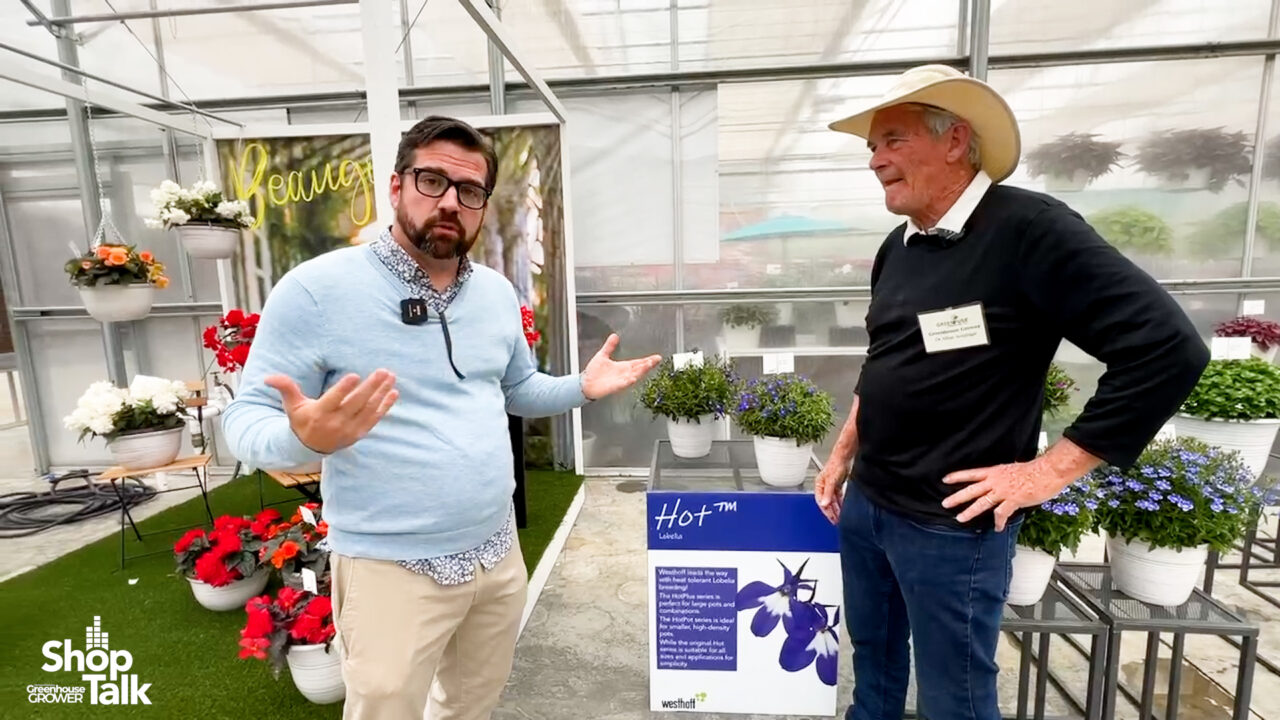Green Industry Brings Top Issues To Capitol Hill

In the age of electronic communications, there is still no substitute for face-to-face conversations when it comes to being heard and remembered. With that in mind, more than 100 members of the Society of American Florists (SAF) traveled to Washington, D.C., to meet with legislators and their staffs in person to make sure the industry’s top concerns are front and center in congressional discussions. This is the 33rd year SAF has coordinated this team effort, known as Congressional Action Days (CAD).
Participants studied the issues the day before visiting the Hill, working with SAF staff. First-time attendees were matched with veterans who could provide guidance on protocol and lead the discussions. The next day, the groups visited a combined 140 legislative offices, telling personal stories of how the issues affect their ability to conduct and grow their businesses.
During the briefings the day before the congressional visits, participants were told to research their congressperson’s personal interests and background, to use both as an ice-breaker and as possible touchpoints on some of the issues. For instance, a congressman who once owned a small business is likely to have more interest in increasing access to small business loans. Knowing the current political climate is always important as well.
“The congressperson or their aides may agree with the point you are making, but it might be a challenge to sell it to their constituents,” says Marvin Miller, chair of SAF’s government relations committee.
At the CAD opening breakfast, SAF President Bob Williams pointed out that the time might be right for at least some of the issues.
“Congress currently has an approval rating of 18 percent,” Williams says. “That’s the lowest since 1974. There does appear to be more incentive to accomplish something now. Because you are here, it means you think you have the power to make a difference. You’re right, you do.”
Top Issues For The 2013 Congressional Action Days
This year, SAF selected four issues to take to Capitol Hill, emphasizing the first three are absolutely vital for a healthy horticulture industry.
Immigration Reform: Being able to tie issues to items already on the Congressional agenda is especially helpful. This year, it was easy – immigration reform was one of the big issues on SAF’s list, and it is also on top of the congressional agenda right now.
SAF supports improved border security and an improved E-Verify program. In addition, an uncapped Agricultural Worker Visa program, which will allow workers to choose either a portability option in which workers can move between employers, or a contract option, is also supported by SAF. SAF also seeks an adjustment of status to allow employers to retain current experienced but unauthorized, workers.
Passage Of A New Farm Bill: The 2008 Farm Bill, which included provisions for specialty crops for the first time, is about to expire. SAF is particularly concerned that the new bill includes adequate funding tor the Animal and Plant Health Inspection Service (APHIS), funding for the Specialty Crop Block Grant Program and for the Specialty Crop Research Initiative. All of these programs are vital to a healthy floriculture industry.
Improving Local Lender Access To The Small Business Administration (SBA) 7(a) Program: Increased loan limits and expansions of eligible businesses have had a dramatic and negative affect on the availability of loan guarantees for local, independently owned small businesses. SAF recommends the creation of a “Main Street Express Pilot” under the SBA’s 7(a) suite of programs. This would improve small-lender access and incentives to lend while providing local small businesses with better access to affordable loans and lines of credit.
Parity In Deductions For Charitable Contributions: Large C-corporations qualify for enhanced deduction of contributions of inventory for the care of the ill, needy or minors. Smaller S-corporations, sole proprietorships or partnerships do not qualify for this enhanced deduction. Small businesses are frequently asked to donate to local charities. SAF asks for tax reform initiatives that will extend the enhanced deduction to all business entities and provide local charities with greater flexibility in the use of such donations.










